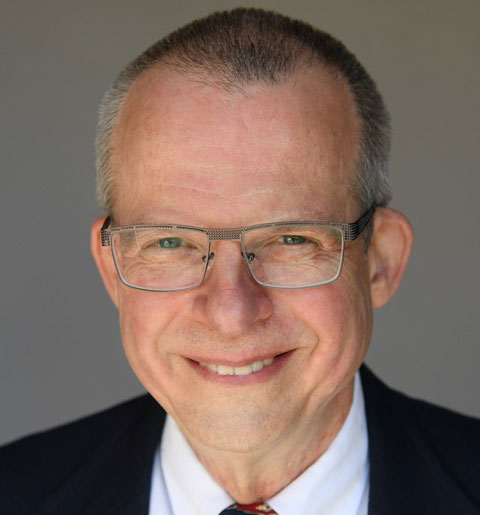Young Adult Rehab in Washington
If you or someone you love is struggling with drug or alcohol addiction, we’re here to help. We understand how overwhelming and hard it can be to deal with, but you don’t have to go through it alone. Our young adult rehab center is here to provide you with the support and resources you need to overcome addiction and reach lasting recovery.
Our team of specialists understands the unique issues young adults face when it comes to addiction, so we offer a comprehensive range of treatments and therapies that are tailored to meet their specific needs. We believe in taking a personal approach to addiction treatment, which allows us to address the underlying causes of substance abuse or co-occurring disorders.
Drugs and alcohol don’t have to rule your life. With our intensive outpatient program, you can get the healing and recovery you need. Our addiction treatment programs provide expert support throughout your healing process. To learn more about this unique treatment option, reach out to Bayview Recovery today.

Services We Offer to Young Adults
There will be many places for your recovery to choose from, but Bayview Recovery is your perfect option. Here’s why:
At Bayview Recovery, we have faith in your ability to heal and overcome your challenges.
A successful recovery journey requires more than just one therapy or treatment modality. At Bayview Recovery, we offer a wide range of therapies and treatments, such as:
We understand the importance of addressing your mental, emotional, and physical well-being. That’s why we also offer holistic therapies, such as meditation, mindfulness training, and life skills education. These therapies help you develop a strong foundation for lasting recovery.
At our young adult rehab center in Tacoma, Washington, you’ll find the support and guidance you need to achieve lasting recovery. Choose Bayview Recovery for a brighter, healthier future.

Why Do Young Adults Struggle With Addiction?
Addiction is a very real and destructive problem, especially for young adults. Unfortunately, most young adults do not seek treatment and struggle with their addiction because of the stigma or fear associated with it.
There are also more practical reasons why many young adults don’t reach out for help. A lack of time or money can be a major barrier to treatment, as can work or family commitments. Additionally, young adults may not be aware of the benefits that treatment can provide, like an increased chance of long-term sobriety, improved mental and physical health outcomes, and the chance to build a healthier lifestyle apart from substances.
Ultimately, if you’re a young adult struggling with addiction, it’s important to know that you don’t have to face it alone—help is available, and there are resources available to make treatment possible.

The 6 Causes of Teen and Young Adult Drug Addiction
There are several reasons why young adults may develop an addiction to substances. These reasons can be broadly categorized into genetic, environmental, and social factors.
- Genetic predisposition: Some individuals may have a genetic predisposition to addiction. If a family member, particularly a parent or sibling, has struggled with substance abuse, it increases the likelihood of developing an addiction.
- Peer pressure: Social pressure from friends or peers can be a significant factor in developing an addiction. Young adults lacking strong support systems may be more susceptible to peer pressure and use substances to fit in or gain approval.
- Coping mechanism: Some young adults turn to substances as a way to cope with stress, personal problems, or negative emotions. Teenagers frequently start abusing alcohol or drugs to lessen their symptoms or to “numb out”. This can eventually result in dependence and addiction.
- Lack of knowledge: Young adults may not be aware of the potential dangers and long-term consequences of substance use. They may underestimate the risks of addiction and continue using substances without understanding the impact on their health and well-being.
- Early exposure: Young adults who start using substances at an early age are more likely to develop an addiction. Early exposure to drugs or alcohol can impact brain development, making it harder to resist addictive substances later in life.
- Environmental factors: Factors such as poverty, neglect, abuse, and exposure to substance use in the home can contribute to addiction in young adults. These circumstances create stress and trauma that may push individuals to seek solace in drugs or alcohol.
It’s essential to understand the factors in order to address the root causes of addiction and provide effective support and prevention strategies for young adults.
What Signs and Symptoms Indicate a Drug Problem in Young Adults?
- changing their friendships frequently
- putting in a lot of alone time
- losing interest in once-favorite pastimes
- not taking care of themselves
- feeling really drained and dejected
- eating more or less than usual
- being really energetic
- speaking rapidly with nonsensical conversations
- being in a foul mood
- rapidly switching from feeling bad to good
- missing important situations/events
- having problems at school
- having difficulties in family or interpersonal relationships
- lying and stealing
- difficulty with memory recall, focus, and coordination such as slurred speech
If you notice any of these signs in a young adult, it’s essential to approach the situation with care and concern. Encourage open communication, offer support, and help them develop coping skills. If necessary, seek professional help from a mental health professional or addiction specialist.

Why Is It Important for Young Adults to
Develop Healthy Coping Skills?
When it comes to managing the impacts of addiction and avoiding relapse, developing healthy ways of coping is crucial for young adults. In the face of life’s challenges and stress, it is important to develop alternate methods of dealing with difficult situations, emotions, and thoughts that don’t involve the use of substances.
Healthy coping skills can include the following:
- Reframing negative thoughts
- Practicing mindfulness or relaxation techniques
- Healthy outlets such as exercise or journaling
- Connecting with peers who are supportive and understanding
- Talking to a therapist or counselor
These methods help young adults become stronger and more resilient in the face of addiction. By gaining tools that address not only their immediate needs but also their underlying issues, they can better take charge of their lives in a meaningful way.
With the proper support, young adults can build confidence in themselves and begin the path toward a healthier future.
Are There Drug Addiction Programs Available for
Young Adults?
You’re probably wondering if there are any kinds of drug addiction programs for young adults. Good news—there absolutely is!
At Bayview Recovery, we offer a range of outpatient and partial hospitalization programs for young adults who are struggling with addiction. Our programs are tailored to the individual needs of each client, as no two people have the same experience with addiction. Plus, we offer additional services like counseling, group therapy, and medical monitoring.
It’s important to note that each individual is unique, and the decision to attend an IOP should be made in consultation with a healthcare professional.
A qualified provider can assess an individual’s needs and recommend the most appropriate level of care.
Our outpatient services provide convenient access to addiction treatment while allowing clients to maintain their daily activities at home or work. Clients will attend therapy sessions and meetings at our facility, while also having the option of participating in recreational activities that will help them recover more quickly.
Our intensive outpatient program offers the same treatment modalities and benefits as other substance abuse treatment options, but in a more flexible format that accommodates personal and professional commitments. You can have a high-quality recovery experience without sacrificing other aspects of your life. Our IOP programs can vary in length, depending on individual needs and progress. Typically, it lasts between 8-12 weeks, with sessions occurring 3-5 days a week for several hours each day.
Our Partial Hospitalization Program (PHP) is designed for clients who may need more structure and support during the recovery process than an outpatient program can provide. This program has numerous benefits and is a common treatment option for many. Participating in the Partial Hospitalization Program can greatly contribute to your recovery from mental health issues. However, it’s essential to attend treatment sessions regularly to ensure complete healing and determine insurance coverage
Our aftercare program ensures that young adults in recovery remain connected to an environment in which they can receive support and guidance beyond their initial treatment period. Following successful completion of our outpatient or partial hospitalization programs, clients may enroll in our aftercare program, which provides support groups and other resources for long-term recovery.

Finding A Young Adult Rehab Center in Washington
Finding a rehab center that specializes in treating young adults is of the utmost importance. At Bayview Recovery Center, we understand that when it comes to addiction, young adults have different needs than other age groups. That’s why we offer a range of treatments, from our outpatient and partial hospitalization programs to our aftercare program, all designed specifically for young adults.
Our young adult recovery program in Washington State employs evidence-based techniques that are supported by research, observation, and outcomes. We address a variety of addictions in our counseling and treatment programs, including:
Marijuana

Contact Our Young Adult Rehab Center in Tacoma Washington
If you’re ready to take this first step towards recovery from drugs or alcohol, give us a call today at Bayview Recovery Center.
We’ll provide you with more information about what we offer so that you can start getting back to living a healthy life.

Dave Cundiff, MD, MPH is an experienced leader in the field of Substance Use Disorder treatment. He works with patients suffering from Substance Use Disorder to evaluate their medication needs and prescribe treatments accordingly. In addition, he regularly participates in all-staff debriefing sessions involving peers, nurses, and other prescribers. He also reviews and advises on policies, procedures, and techniques for treating substance use disorder.




